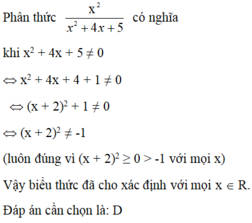Hãy nhập câu hỏi của bạn vào đây, nếu là tài khoản VIP, bạn sẽ được ưu tiên trả lời.

1) x - 8 = 3 - 2(x + 4)
<=> x - 8 = 3 - 2x - 8
<=> x + 2x = -5 + 8
<=> 3x = 3
<=> x = 1
Vậy S = {1}
2) 2(x + 3) - 3(x - 1) = 2
<=> 2x + 6 - 3x + 3 = 2
<=> -x = 2 - 9
<=> -x = -7
<=> x = 7
Vậy S = {7}
3) 4(x - 5) - (3x - 1) = x - 19
<=> 4x - 20 - 3x + 1 = x - 19
<=> x - 19 = x - 19
<=> x - x = -19 + 19
<=> 0x = 0
=> pt luôn đúng với mọi x
4) 7 - (x - 2) = 5(2x - 3)
<=> 7 - x + 2 = 10x + 15
<=> -x - 10x = 15 - 9
<=> -11x = 6
<=> x = -6/11
Vậy S = {-6/11}
\(5,32-4\left(0,5y-5\right)=3y+2\)
\(\Leftrightarrow32-2y+20-3y-2=0\)
\(\Leftrightarrow-5y+50=0\Leftrightarrow y=10\)
\(6,3\left(x-1\right)-x=2x-3\)
\(\Leftrightarrow3x-3-x-2x+3=0\)
\(\Leftrightarrow0=0\) (luôn đúng )
=> pt vô số nghiệm
\(7,2x-4=-12+3x\)
\(\Leftrightarrow-x=-8\Leftrightarrow x=8\)
\(8,x\left(x-1\right)-x\left(x+3\right)=15\)
\(\Leftrightarrow x^2-x-x^2-3x-15=0\)
\(\Leftrightarrow-4x-15=0\Leftrightarrow x=\frac{-15}{4}\)
\(9,x\left(x-1\right)=x\left(x+3\right)\)
\(\Leftrightarrow x^2-x-x^2-3x=0\Leftrightarrow-4x=0\Leftrightarrow x=0\)
\(10,x\left(2x-3\right)+2=x\left(x-5\right)-1\)
\(\Leftrightarrow2x^2-3x+2-x^2+5x+1=0\)
\(\Leftrightarrow x^2+2x+3=0\) (vô lý)
=> pt vô nghiệm
\(11,\left(x-1\right)\left(x+3\right)=-4\)
\(\Leftrightarrow x^2+2x-3+4=0\)
\(\Leftrightarrow\left(x+1\right)^2=0\Leftrightarrow x=-1\)
\(12,\left(x-2\right)\left(x-5\right)=\left(x-3\right)\left(x-4\right)\)
\(\Leftrightarrow x^2-7x+10=x^2-7x+12\)
\(\Leftrightarrow10=12\) (vô lý)=> pt vô nghiệm


Ta có ; \(2x^2+3\left(x^2-1\right)=5\left(x^2+x\right)\)
\(\Leftrightarrow2x^2+3x^2-3=5x^2+5x\)
\(\Leftrightarrow x=-\dfrac{3}{5}\)
Vậy ...

Mình không hiểu đề bài cho lắm bạn có thể ghi lại đề không ??
Lưu ý: kí hiệu này là mũ ( ^ ) nha

a) (*) ⇔ (5x – 3)2 – (4x – 7)2 = 0
⇔ (5x – 3 + 4x – 7)(5x – 3 – 4x + 7) = 0
⇔ (9x – 10)(x + 4) = 0 ⇔ 9x – 10 = 0 hoặc x + 4 = 0
⇔ x = 10/9 hoặc x = -4
Tập nghiệm : S = { 10/9 ; -4}
b) ĐKXĐ: (x + 4)(x – 4) ≠ 0 ⇔ x + 4 ≠ 0 và x – 4 ≠ 0 ⇔ x ≠ ⇔ 4
Ta có: x2 – 16 = (x + 4)(x – 4) ≠ 0
Quy đồng và khử mẫu, ta được:
96 + 6(x2 – 16) = (2x – 1)(x – 4) + (3x – 1)(x + 4)
⇔ 96 + 6x2 – 96 = 2x2 – 8x – x + 4 + 3x2 + 12x – x – 4
⇔ x2 – 2x = 0 ⇔ x(x – 2) = 0
⇔ x = 0 hoặc x – 2 = 0
⇔ x = 0 hoặc x = 2 (thỏa mãn ĐKXĐ)
Tập nghiệm: S = {0;2}
c) ĐKXĐ: x ≠ 0; x – 1 ≠ 0 và x – 2 ≠ 0 ⇔ x ≠ 0; x ≠ 1 và x ≠ 2
MTC: 4x(x – 2)(x – 1)
Quy đồng và khử mẫu, ta được:
2(1 – x)(x – 1) – x(x – 2) = 2(x – 1)2 – 2(x – 1)(x – 2)
⇔ -2x2 + 4x – 2 – x2 + 2x = 2x2 – 4x + 2 – 2x2 + 6x – 4
⇔ 3x2 – 4x = 0 ⇔ x(3x – 4) = 0 ⇔ x = 0 hoặc x = 4/3
(x = 0 không thỏa mãn ĐKXĐ)
Tập nghiệm: S = {4/3}

a) \(\left(2x-1\right)^2-25=0\)
⇔ \(\left(2x-1\right)^2-5^2=0\)
⇔ \(\left(2x-1-5\right)\left(2x-1+5\right)=0\)
⇒ \(2x-1-5=0\) hoặc \(2x-1+5=0\)
⇔ \(x=3\) hoặc \(x=-2\)
Bài 1: Tìm x
a) (2x-1) ² - 25 = 0
<=> (2x-1)2 = 25
<=> 2x-1 = 5 hay 2x-1 =-5
<=> 2x= 6 hay 2x=-4
<=> x=3 hay x= -2
Vậy S={3; -2}
b) 3x (x-1) + x - 1 = 0
<=> (x-1)(3x+1)=0
<=> x-1=0 hay 3x+1=0
<=> x=1 hay 3x=-1
<=> x=1 hay x=\(\dfrac{-1}{3}\)
Vậy S={1;\(\dfrac{-1}{3}\)}
c) 2(x+3) - x ² - 3x = 0
<=> 2(x+3)- x(x+3)=0
<=> (x+3)(2-x)=0
<=> x+3=0 hay 2-x=0
<=> x=-3 hay x=2
Vậy S={-3;2}
d) x(x - 2) + 3x - 6 = 0
<=> x(x-2)+3(x-2)=0
<=> (x-2)(x+3)=0
<=> x-2=0 hay x+3=0
<=> x=2 hay x=-3
Vậy S={2;-3}
e) 4x ² - 4x +1 = 0
<=> (2x-1)2=0
<=> 2x-1=0
<=> 2x=1
<=> x=\(\dfrac{1}{2}\)
Vậy S={\(\dfrac{1}{2}\)}
f) x +5x2 = 0
<=> x(1+5x)=0
<=>x=0 hay 1+5x=0
<=> x=0 hay 5x=-1
<=> x=0 hay x= \(\dfrac{-1}{5}\)
Vậy S={0;\(\dfrac{-1}{5}\)}
g) x ²+ 2x -3 = 0
<=> x2-x+3x-3=0
<=> x(x-1)+3(x-1)=0
<=> (x-1)(x+3)=0
<=> x-1=0 hay x+3=0
<=> x=1 hay x=-3
Vậy S={1;-3}

Bài 1
a) 5x²y - 20xy²
= 5xy(x - 4y)
b) 1 - 8x + 16x² - y²
= (1 - 8x + 16x²) - y²
= (1 - 4x)² - y²
= (1 - 4x - y)(1 - 4x + y)
c) 4x - 4 - x²
= -(x² - 4x + 4)
= -(x - 2)²
d) x³ - 2x² + x - xy²
= x(x² - 2x + 1 - y²)
= x[(x² - 2x+ 1) - y²]
= x[(x - 1)² - y²]
= x(x - 1 - y)(x - 1 + y)
= x(x - y - 1)(x + y - 1)
e) 27 - 3x²
= 3(9 - x²)
= 3(3 - x)(3 + x)
f) 2x² + 4x + 2 - 2y²
= 2(x² + 2x + 1 - y²)
= 2[(x² + 2x + 1) - y²]
= 2[(x + 1)² - y²]
= 2(x + 1 - y)(x + 1 + y)
= 2(x - y + 1)(x + y + 1)
Bài 2:
a: \(x^2\left(x-2023\right)+x-2023=0\)
=>\(\left(x-2023\right)\left(x^2+1\right)=0\)
mà \(x^2+1>=1>0\forall x\)
nên x-2023=0
=>x=2023
b:
ĐKXĐ: x<>0
\(-x\left(x-4\right)+\left(2x^3-4x^2-9x\right):x=0\)
=>\(-x\left(x-4\right)+2x^2-4x-9=0\)
=>\(-x^2+4x+2x^2-4x-9=0\)
=>\(x^2-9=0\)
=>(x-3)(x+3)=0
=>\(\left[{}\begin{matrix}x-3=0\\x+3=0\end{matrix}\right.\Leftrightarrow\left[{}\begin{matrix}x=3\\x=-3\end{matrix}\right.\)
c: \(x^2+2x-3x-6=0\)
=>\(\left(x^2+2x\right)-\left(3x+6\right)=0\)
=>\(x\left(x+2\right)-3\left(x+2\right)=0\)
=>(x+2)(x-3)=0
=>\(\left[{}\begin{matrix}x+2=0\\x-3=0\end{matrix}\right.\Leftrightarrow\left[{}\begin{matrix}x=3\\x=-2\end{matrix}\right.\)
d: 3x(x-10)-2x+20=0
=>\(3x\left(x-10\right)-\left(2x-20\right)=0\)
=>\(3x\left(x-10\right)-2\left(x-10\right)=0\)
=>\(\left(x-10\right)\left(3x-2\right)=0\)
=>\(\left[{}\begin{matrix}x-10=0\\3x-2=0\end{matrix}\right.\Leftrightarrow\left[{}\begin{matrix}x=\dfrac{2}{3}\\x=10\end{matrix}\right.\)
Câu 1:
a: \(5x^2y-20xy^2\)
\(=5xy\cdot x-5xy\cdot4y\)
\(=5xy\left(x-4y\right)\)
b: \(1-8x+16x^2-y^2\)
\(=\left(16x^2-8x+1\right)-y^2\)
\(=\left(4x-1\right)^2-y^2\)
\(=\left(4x-1-y\right)\left(4x-1+y\right)\)
c: \(4x-4-x^2\)
\(=-\left(x^2-4x+4\right)\)
\(=-\left(x-2\right)^2\)
d: \(x^3-2x^2+x-xy^2\)
\(=x\left(x^2-2x+1-y^2\right)\)
\(=x\left[\left(x^2-2x+1\right)-y^2\right]\)
\(=x\left[\left(x-1\right)^2-y^2\right]\)
\(=x\left(x-1-y\right)\left(x-1+y\right)\)
e: \(27-3x^2\)
\(=3\left(9-x^2\right)\)
\(=3\left(3-x\right)\left(3+x\right)\)
f: \(2x^2+4x+2-2y^2\)
\(=2\left(x^2+2x+1-y^2\right)\)
\(=2\left[\left(x^2+2x+1\right)-y^2\right]\)
\(=2\left[\left(x+1\right)^2-y^2\right]\)
\(=2\left(x+1+y\right)\left(x+1-y\right)\)

x2x2 là sao bn